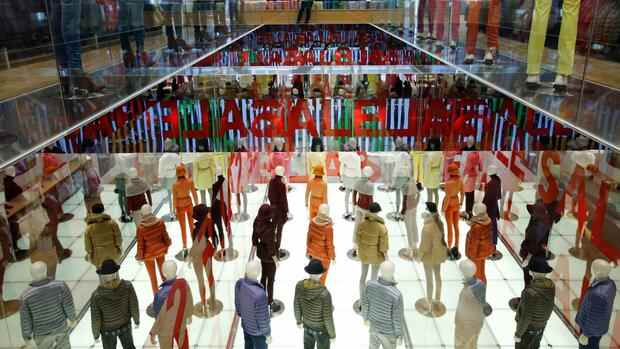Downshifting, fasting clothes, abstaining from consumption – the trend towards voluntary abstinence has received a new impetus, especially in the Corona period. Thrown back on themselves, many people realized how easily they can do without things – and how much they protect the environment.
In it he explains the impact it would have if society suddenly stopped buying things that are superfluous. How would the economy react, how would the world of work change, what would a non-consumption do to our lives and our thinking? The redeeming answer: It can only get better.
The idea that one day consumer appetite will naturally reach a limit is of course not new. The English economist William Stanley Jevons said the same thing about the material economy more than 150 years ago.
Top jobs of the day
Find the best jobs now and
be notified by email.
In his entertaining non-fiction book, MacKinnon now also walks through the stages of a worldwide decline in consumption. He speaks to protagonists, such as Levi’s sustainability boss Paul Dillinger, who frankly admits that the textile industry lives from “unnecessary consumption”. Dillinger, whose company earns money by constantly calling for new jeans cuts, has a critical view of his industry.
James B. MacKinnon: The day we stop shopping.
Penguin Publishing House
Munich 2021
449 pages
16.99 euros
MacKinnon uses figures to illustrate the extent of unnecessary consumption: Measured by weight, people buy five times more clothing today than in the 1950s. And: The McKinsey consultancy has calculated that six out of ten items of clothing end up in the trash within a year of being produced.
MacKinnon, as he himself admits, wrote his book “in the tradition of fact-based thought experiments and imaginative redesign of reality”. During a visit by the economist Peter Victor, for example, he describes the retired person like in a novel.
And then to get to its economic perspective: When people demand less goods and services, economic activity falls, as a result, the workload is reduced, and people work less – and have more free time. His conclusion: people could buy less – without ruining the economy.
However, consumption not only has economic effects, but also psychological reasons. “Advertising mostly aims at the consumption of validity; and this is the kind of consumption we normally talk about when we talk about shopping, ”MacKinnon writes. “Since we incessantly use consumption to position ourselves in relation to the people around us, scholars today often speak of“ positional consumption ” printed T-shirt for the Susuwatari bugs from the Totoro universe.
But satisfaction or even happiness requires other sources than consumption. MacKinnon visits numerous people all over the world, from the USA to Finland to Japan, who have found a lifestyle that is as frugal as it is satisfactory.
The author advocates voluntary abstinence from consumption
The idea is not new. The term “voluntary simplicity” was coined in 1936 by the American social philosopher Richard Gregg. A role model for all of us, as MacKinnon thinks.
The consumption renunciation book is not the author’s first work. The 51-year-old has already written a book about regional foods and a detective novel. MacKinnon, it seems, likes to describe his environment and report small incidents.
And so his latest book is a passionate plea for voluntary, at least partial, consumption renouncement, at the end of which there are also concrete proposals. These range from life-time information in product labeling, to regulations for repairing products, to job-sharing programs and shortening working days or weeks so that people can find work in a slower, smaller economy.
And he advises his readers at the end: “Stop. Like many other people, you may discover that living with less is one of the secrets of a happier life. “
More: Why it is so difficult to get plastic out of packaging.
